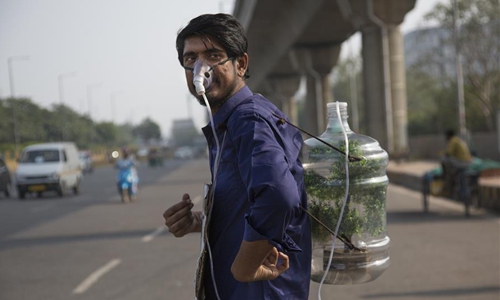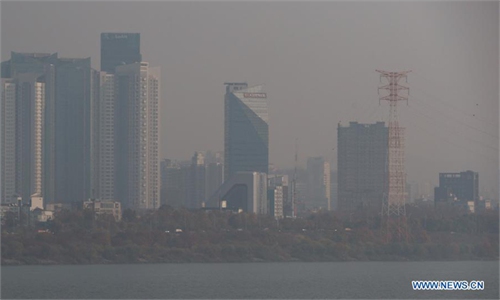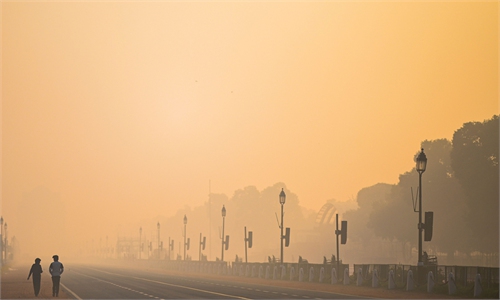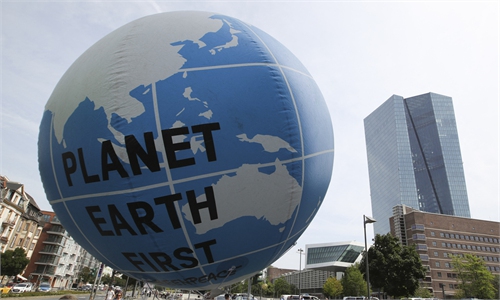WHO says air pollution leads to 7m deaths per year, toughens guidelines
Invisible human killer a global concern

Pankaj Kumar is seen in Noida, on the outskirts of Delhi, India, on Dec. 1, 2019. In the highly polluted Indian capital that witnessed an alarming increase in air pollution recently, a young man named Pankaj Kumar wearing an oxygen mask and carrying a 20-liter plastic water bottle strapped to his back is an unusual attraction. (Xinhua/Javed Dar)
The World Health Organization strengthened its air quality guidelines on Wednesday, saying air pollution was now one of the biggest environmental threats to human health, causing 7 million premature deaths a year.
Urgent action is needed to reduce exposure to air pollution, said the UN body, ranking its burden of disease on a par with smoking and unhealthy eating.
"WHO has adjusted almost all the air quality guideline levels downwards, warning that exceeding the new... levels is associated with significant risks to health," it said. "Adhering to them could save millions of lives."
The guidelines aim to protect people from the adverse effects of air pollution and are used by governments as a reference for legally binding standards.
The UN health agency last issued air quality guidelines, or AQGs, in 2005, which had a significant impact on pollution abatement policies worldwide.
In the 16 years since however, the WHO said more evidence had emerged showing that air pollution effected health at lower concentrations than previously understood.
"The evidence is sufficient to justify actions to reduce population exposure to key air pollutants, not only in particular countries or regions but on a global scale," the organization said.
The new guidelines come just in time for the COP26 global climate summit set to be held from October 31 to November 12.
The WHO said that alongside climate change, air pollution was one of the biggest threats to human health.
Its climate change chief Maria Neira said the WHO was preparing a report to present in Glasgow to stress the "enormous health benefits" of reducing air pollution by mitigating climate change.
"You can imagine the number of lives we will save," she told journalists.
The new WHO guidelines recommend lower air quality levels for six pollutants, including ozone, nitrogen dioxide and carbon monoxide.
The other two are PM10 and PM2.5, particulate matter equal or smaller than 10 and 2.5 microns in diameter.
Both can penetrate deep into the lungs but researchers say PM2.5 can even enter the bloodstream, causing mainly cardiovascular and respiratory problems, but also affecting other organs, said the WHO.
In response, the PM2.5 guideline level has been halved.
"Almost everyone is exposed to unhealthy air pollution," said WHO chief Tedros Adhanom Ghebreyesus.
"Inhaling dirty air increases the risk of respiratory diseases like pneumonia, and the risk of severe COVID-19."
Air quality has markedly improved since the 1990s in high-income countries, the WHO noted. But the global toll in deaths and lost years of healthy life barely declined because air quality deteriorated in most other countries.
"Every year, exposure to air pollution is estimated to cause 7 million premature deaths and result in the loss of millions more healthy years of life," the WHO said.
AFP



